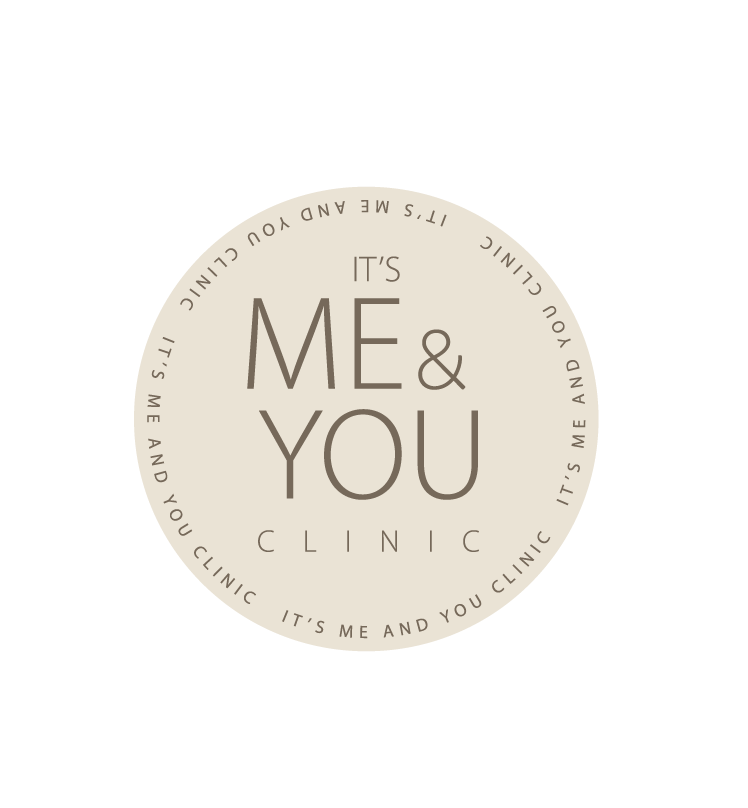It is ideal to wait for around two days after Botox injections to consume alcohol since it causes blood thinning and acts as a vasodilator. This blog discusses reasons for avoiding alcohol after botox, including what botox is, other things to avoid after treatment, and frequently asked questions.
Botox’s popularity grows daily as most clients realize its cosmetic benefits in softening dynamic facial wrinkles. Botulinum toxin injection is a safe treatment, but like other anti-wrinkle injections, it has some side effects. After the treatment, qualified cosmetic doctors advise patients from taking alcohol, including other things affecting the healing process. Alcohol is a vasodilator, causing expansion and relaxation of blood vessels to all body parts. As a result, it may worsen side effects or trigger the migration of the botulinum toxin treatment formula to unwanted facial muscles. Therefore, adhering to a cosmetic doctor’s aftercare tips is vital to lessenminimal downtime. Use this article to learn more about avoiding alcohol after botulinum toxin injections.
What Is Botox?
Botox is a popular brand representing a cosmetic procedure to soften facial wrinkles or deep-rooted fine lines. A cosmetic doctor injects a well-diluted amount of botulinum toxininjections into the skin muscles. According to Dahan-Oliel et al. (2012), botulinum toxin injections blockthe signaling of certain nerve impulses that causes muscle contraction or movements upon injection. As a result, the targeted facial muscles relax, softening the surrounding wrinkles or folds. Botulinum toxin treatment is primarily used for cosmetic concerns, although some use it for specific medical complications. Wright et al. (2018)that anti-wrinkle treatments can help reduce the effects of body conditions affecting the muscular systems; they include:
- Cervical dystonia causes the head to be positioned in an uncomfortable position.
- Excessive sweating
- Excessive production of saliva
- Chronic migraines
Reasons for Avoiding Alcohol after Botox
The Food Standard Agency (FSA) has approved Botox treatment as a safe and effective procedure when performed by a qualified aesthetic practitioner or cosmetic doctor. Urits et al. (2020) claimed that botulinum toxin treatment could be accompanied by short-lived side effects like swelling on the injection site. It takes a few days for patients to recover from side effects if they adhere to certain aftercare advice from their aesthetic practitioners. Avoiding alcohol immediately after treatment is vital. The following are reasons to avoid alcohol consumption immediately after getting Botox injections:
- According to Shayesteh et al. (2016), alcohol is a vasodilator (blood thinner); it stimulates the expansion and relaxation of blood vessels. This increases blood flow and the chances of botulinum toxin migrations to untargeted facial muscles. As a result, patients may experience rare complications, like a droopy eyelid.
- Alcohol may also cause fluid retention, making the injection site prone to bruising and swelling afterbotulinum toxin treatments. This makes the treated area prone to infections like cold sores by weakening the skin’s natural healing process.
- Witmanowski et al. (2020) suggested that most patients who take alcohol after botulinum toxin treatment may experience side effects such as prolonged swelling, bruising, and skin redness.
- Redfern (2018) showed that a short-lived side effect of anti-wrinkle treatment is dizziness or drowsiness, which doesn’t pair well with drinking alcohol. Patients should avoid alcohol after treatment.
- Alcohol causes skin dehydration if especially if taken excessively. Dry skin may trigger excessive inflammatory responses, prolonging the healing process of botox’s short-lived side effects. Botulinum toxin treatment is about making the skin look young, but alcohol causes skin cracking and stimulates premature aging.
There is no defined time when to resume taking alcohol.Lim et al. (2020) suggested that patients should avoid drinking alcohol 48 hours after getting anti-wrinkle injections.
Other Things to Avoid After Botox
Rubbing the Injection Site
Goodman et al. (2020) showed that patients should avoid rubbing and touching the face after botulinum toxin treatments. The treated area heals fast with proper care from a cosmetic doctor. However, rubbing it may cause irritating discomfort and prolong the swelling and bruising effects.
Resting on Your Face
Biello et al. (2021) suggested that patients should avoid sleeping while facing down 24 hours after getting botulinum toxin injections. This is to avoid applying a lot of pressure to the injection site and prevent migration of Botox formula to untargeted facial muscles. Patients should sit up after treatment to allow the injectables to settle.
Strenuous Exercises and Activities
According to Yeh et al. (2018),patients should avoid extreme exercises like gym work after Botox treatment for the following reasons:
- They increase blood flow to all body parts, including the vessels around the injection site, causing the migration of botulinum toxin injections to unwanted muscles. As a result, it prolongs the time required for Botox to settle and causes a frozen look.
- Strenuous activities make the treated areas more susceptible to bruising and swelling.
- Extreme activities cause sweating, making the injection site more prone to infections and irritations.
- Botulinum toxin treatment effects do not last longer for patients with an active lifestyle. McCall (2021) claimed that gym activities, extreme yoga positions, sports exercises,and other strenuous lifestyles increase the breakdown of the Botox formula by increasing the body’s metabolic rate.
Sun Exposure and Heat
Speth& Morin (2022) suggested that patients should avoid exposure to sun radiation, tanning beds, heated rooms, and heat lamps at least 24 hours after getting botulinum toxin treatment. Besides sweating, which irritates the injection site, too much heat causes skin inflammation, increasing the risk of infection and prolonging the recovery
Makeup
Patients should avoid makeup after Botox treatment since it can cause infections. Some exfoliating makeup products contain salicylic acid that may irritate the injection site and make the treated area more susceptible to certain skin infections. Makeup suffocates the skin weakening the natural healing process from short-lived Botox side effects.
Flying
According to Chao et al. (2020), plane air pressure causes prolonged swelling and bruising, affecting the botulinum toxin injection formula’s settlement. Most qualified cosmetic doctors advise patients to wait at least a week before booking a flight ticket.
Frequently Asked Questions about Botulinum Toxin Injections
How Much Can I Charge for Botox UK?
According to Fasano et al. (2020), botulinum toxin treatment costs in the UK vary between £200 to £650 for every injection based on the area being treated and the clinic fee. The location of the clinic and the professionality of the cosmetic doctor affects the clinic price. However, it is worth spending more on an authorized cosmetic clinic than on cheap local cosmetic doctors.
How Soon Will I See Botox Results?
Botox treatment does not produce an immediate result, although it doesn’t take long. Zhang (2022) showed that most patients might see results 3-6 days after botox treatment, depending on the amount injected and the area being treated. It might take a few weeks to see changes when clearing wrinkles. However, Rekand et al. (2019) showed that the final optimal result is noticed between the third week and 30 days after botulinum toxin injections.
Summary
Botox is a formulation of Botulinum toxin. This cosmetic treatment is generally considered safe by FSA. However, like most anti-wrinkle injections, it can be accompanied by short-lived side effects like bruising and swelling. A qualified cosmetic doctor may disapprove of certain things, such as drinking alcohol immediately after the injection. Alcohol may cause blood thinning and expansion of bold vessels. It may prolong the healing of Botox’s side effects.
Alcohol causes skin dehydration which may intensify swelling and bruising. Constant alcohol consumption may also diminish Botox’s effects quickly. Therefore, patients should avoid alcohol at least two days after getting a Botox injection.
References
Biello, A., Oney, R., & Zhu, B. (2021). Botulinum Toxin Treatment Of The Upper Face. In Statpearls [Internet]. Statpearls P Lim, S. H., Tiew, W. J., Zhang, J., Ho, P. C. L., Kachouie, N. N., & Kang, L. (2020). Geometrical OptimisationOf A Personalised Microneedle Eye Patch For Transdermal Delivery Of Anti-Wrinkle Small Peptide. Biofabrication, 12(3), 035003.
Chao, Y. Y. Y., Cotofana, S., &Moellhoff, N. (2022). Fundamentals Of Injectable Filler Procedures. In Adapting Dermal Fillers In Clinical Practice (Pp. 1-16). CRC Press.
Dahan-Oliel, N., Kasaai, B., Montpetit, K., &Hamdy, R. (2012). Effectiveness And Safety Of Botulinum Toxin Type An In Children With Musculoskeletal Conditions: What Is The Current Evidence? International Journal OfPediatrics, 2012.
Fasano, A., Paramanandam, V., & Jog, M. (2020). Use Of AbobotulinumtoxinaIn Adults With Cervical Dystonia: A Systematic Literature Review. Toxins, 12(8), 470.
Mccall, P. (2021). Ageless Intensity: High-Intensity Workouts To Slow The Aging Process. Human Kinetics.
Nestor, M. S., Han, H., Gade, A., Fischer, D., Saban, Y., &Polselli, R. (2021). Botulinum Toxin–Induced Blepharoptosis: Anatomy, Etiology, Prevention, And Therapeutic Options. Journal Of Cosmetic Dermatology, 20(10), 3133-3146.
Rekand, T., Biering-Sörensen, B., He, J., Vilholm, O. J., Christensen, P. B., Ulfarsson, T., … &Dalager, T. (2019). Botulinum Toxin Treatment Of Spasticity Targeted To Muscle Endplates: An International, Randomised, Evaluator-Blinded Study Comparing Two Different Botulinum Toxin Injection Strategies For The Treatment Of Upper Limb Spasticity. BMJ Open, 9(5), E024340.
Shayesteh, A., Boman, J., Janlert, U., Brulin, C., & Nylander, E. (2016). Primary Hyperhidrosis: Implications On Symptoms, Daily Life, Health And Alcohol Consumption When Treated With Botulinum Toxin. The Journal Of Dermatology, 43(8), 928-933.
Wright, G., Lax, A., & Mehta, S. B. (2018). A Review Of The Longevity Of Effect Of Botulinum Toxin In Wrinkle Treatments. British Dental Journal, 224(4), 255-260.\
Yeh, Y. T., Peng, J. H., & Peng, H. L. P. (2018). Literature Review: The Adverse Events Associated With Botulinum Toxin Injection For Masseter Muscle Hypertrophy. Journal Of Cosmetic Dermatology, 17(5), 675-687.
Zhang, Z. (2022). Clinical Observation Of Botulinum Toxin Injection In The Treatment Of Focal Dystonia And Muscle Spasm. Biomed Research International, 2022.
- Just CBD FL: A Comprehensive Review - April 11, 2024
- Dermal Fillers, Anti-Wrinkle Injections in Stoke D’abernon KT11 - March 16, 2024
- What Can Go Wrong With Lip Fillers - August 11, 2023

